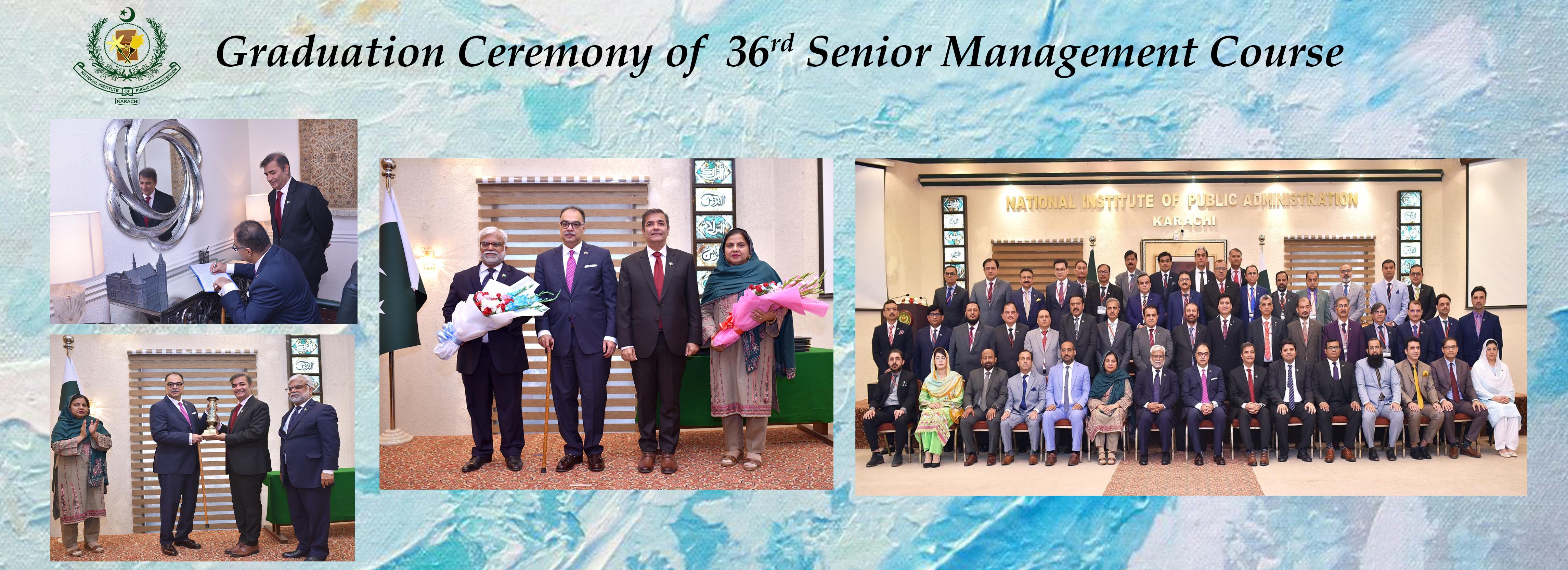Vision
Introducing excellence in public service delivery through capacity building and the inculcation of skills and values essential for good governance.
Mission
The mission statement of NIPA Karachi reads: "NIPA aims to introduce excellence in public service through capacity building and the inculcation of skills and values essential for accountable and effective governance.
The mission is grounded in the philosophy that the foundation of good governance is a transparent and effective government that is free from corruption, efficient, responsive, fair, and impartial, while upholding the principles of merit and equal treatment, free from any form of discrimination or bias.
Basic Aim
The core aim of NIPA Karachi is the capacity building of public servants in the performance of their duties. This can be achieved by fostering a sense of responsibility and a willingness to embrace change for the prosperity and betterment of society. This approach will help public servants anticipate demands, influence development, and meet needs in the most imaginative, practical, and productive manner. To this end, we have successfully trained a large number of mid-career and senior-level civil servants, equipping them to address the challenging issues of public policy, decision-making, and effective service delivery.
Learning Philosophy and Vision of the Training Courses
Good governance, human resource development, and leadership form the core areas of our learning philosophy. Participant-centered training and education, within a governance framework, aims to produce leaders with vision—leaders who are efficient, responsive, proactive, and futuristic in their outlook. These leaders will inspire confidence and readily accept change for greater efficiency and cost-effectiveness. They will be willing to learn and apply modern management tools and techniques, while remaining responsive to the needs of the public, especially those of common citizens.
Areas of Emphasis
In line with the above philosophy and principles, our primary emphasis is on developing analytical skills, managerial excellence, and negotiation abilities, along with advocacy skills through the dissemination of knowledge, information, and expertise. The participants are expected to primarily achieve competence in three key areas:
- First: civil servants must become skilled analysts: Owing to the prime importance of analysis in the process of policy formulation, it is imperative that the civil servants become skilled analysts to improve the quality and effectiveness of the public policy environment. In order to bridge the gap between public policy formulation and its implementation, the course contents are designed to cultivate analytical ability in impact economic, financial, and socio-political analyses.
- Second: public servants must be competent managers: Human organizations are complex entities with limited resources. These resources are precious and scarce, and must be used wisely and strategically. Competent managers ensure efficient usage of all resources, human and material.
- Third: public servants must also be effective advocates: In order to be effective and efficient, they ought to be able to communicate purposefully, negotiate forcefully, articulate a vision, develop a mission statement, define goals and objectives that go with that mission and then build requisite consensus for its operation.


.jpg)
.jpg)

.jpg)
.jpg)
.jpg)
.jpg)
.jpg)
.jpg)
.jpg)

.jpg)
.jpg)
.jpg)
.jpg)

.jpg)

.jpg)
.jpg)
.jpg)


.jpg)




.jpg)

.jpeg)



.jpeg)










